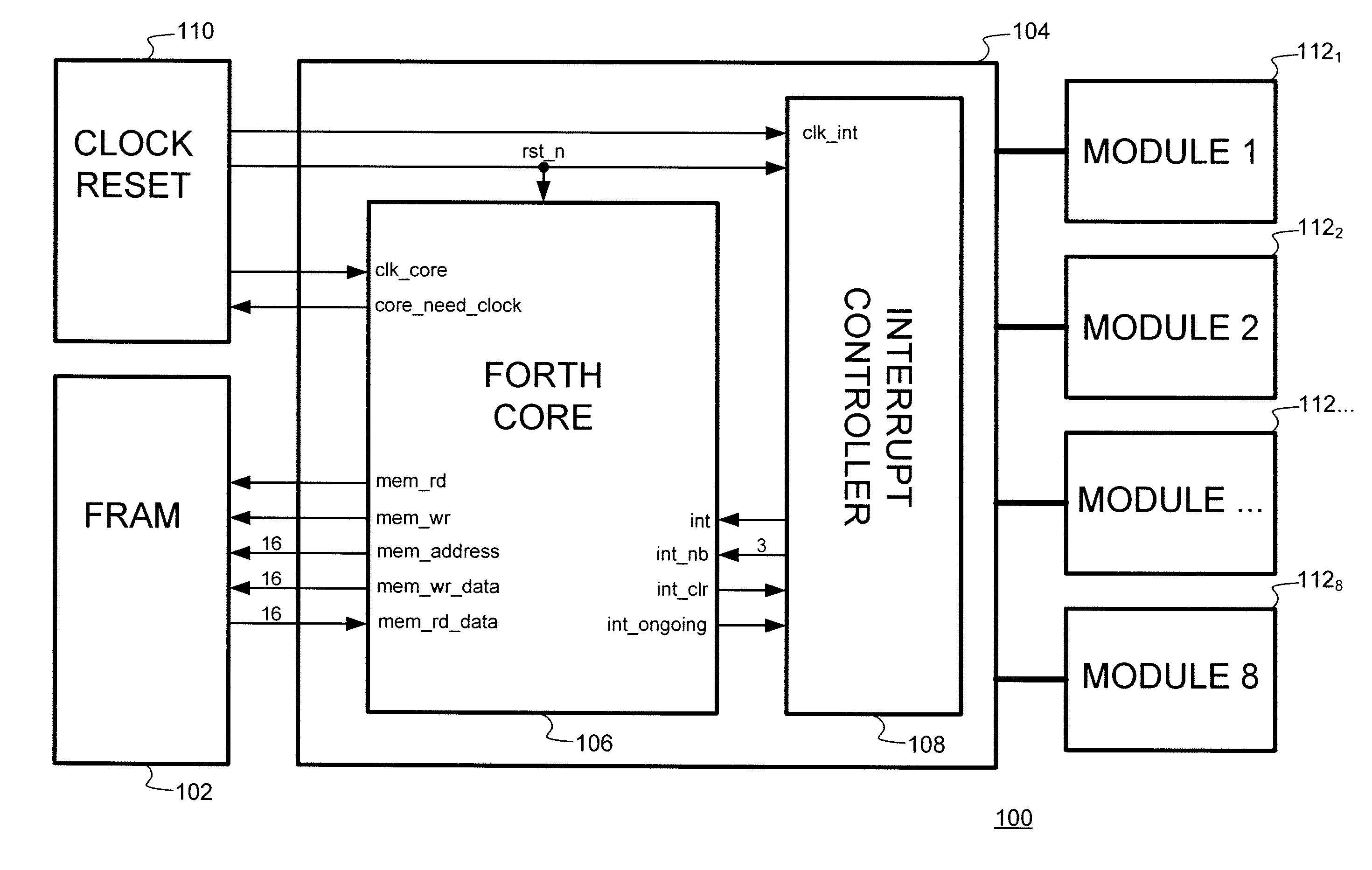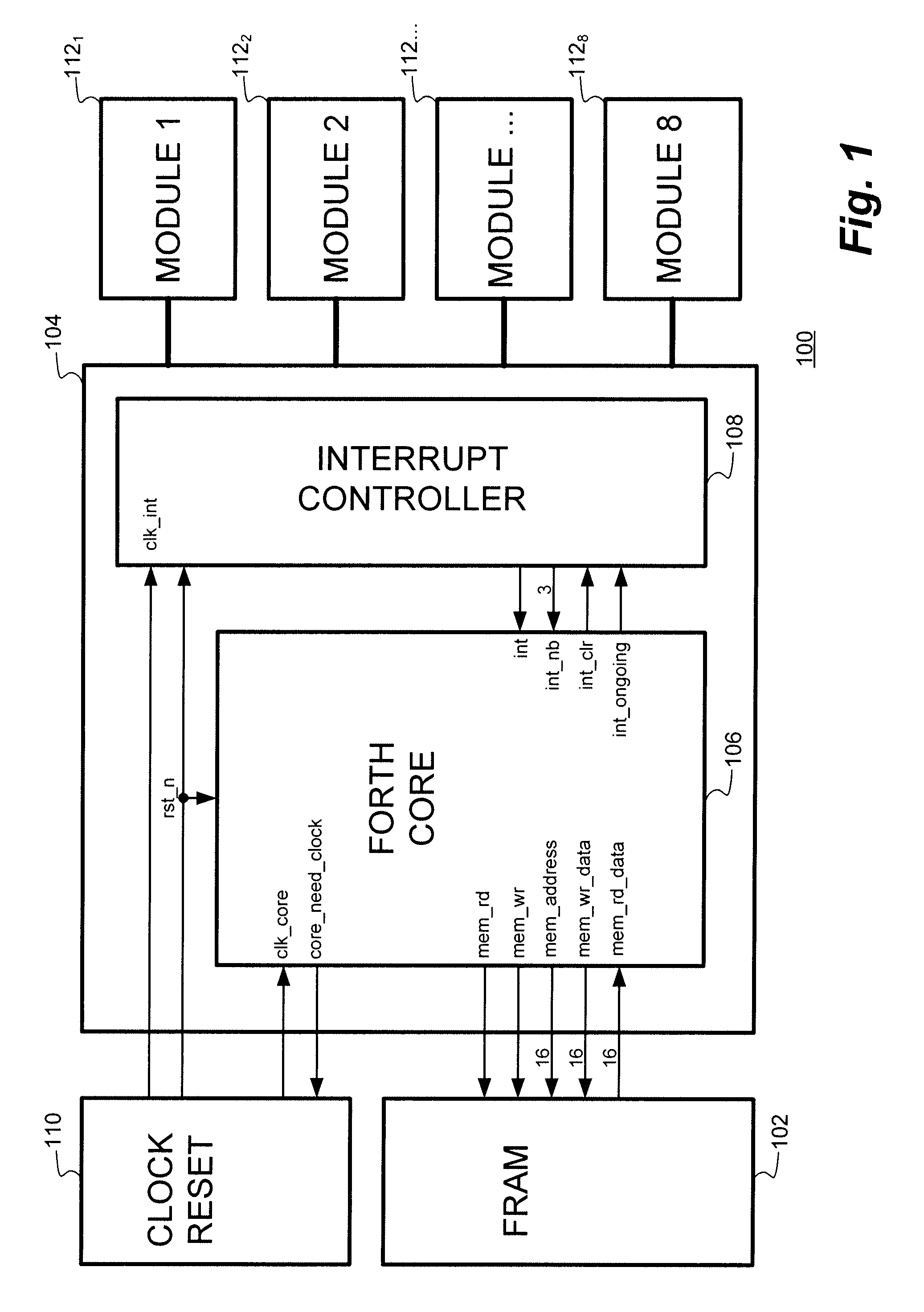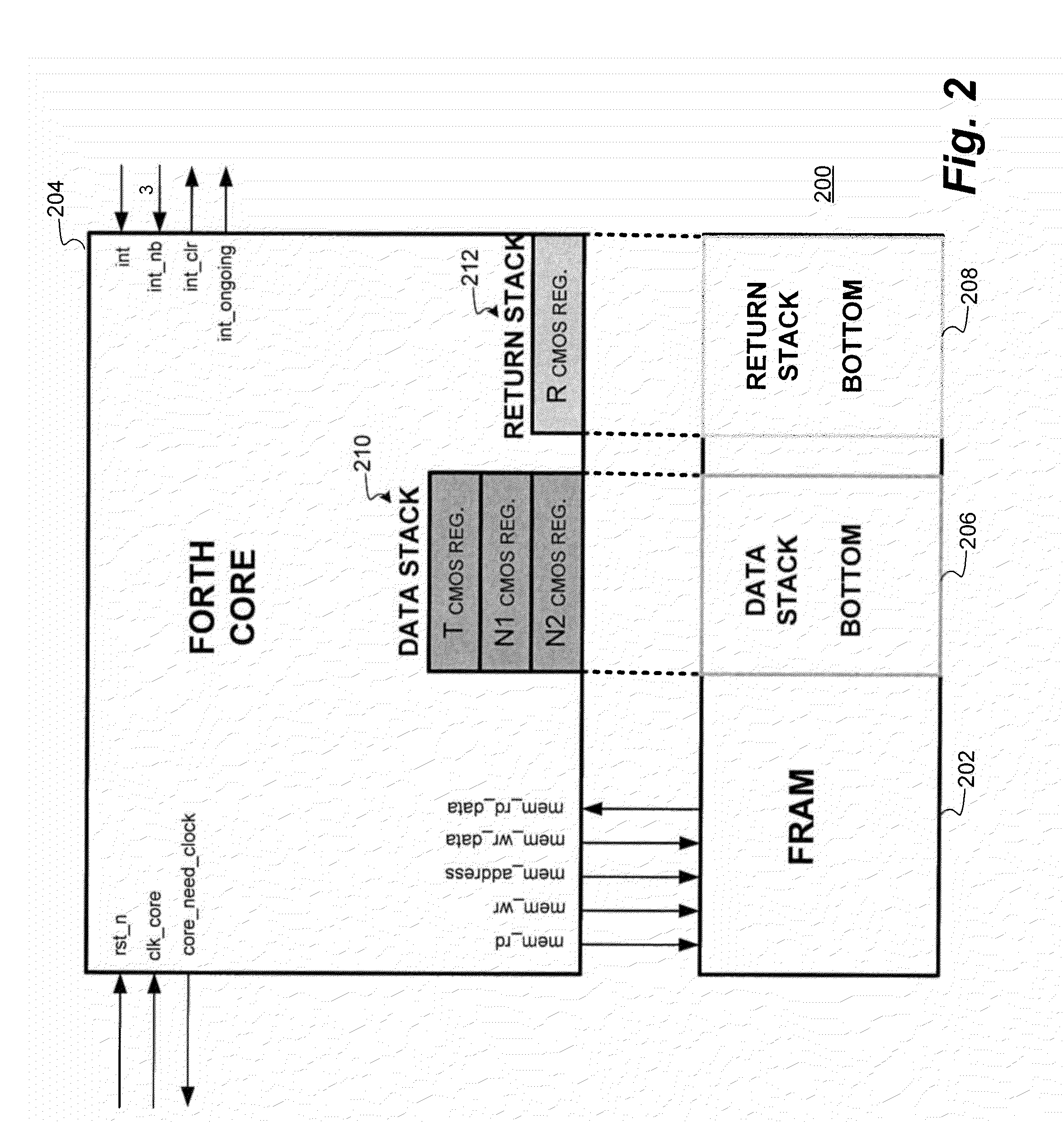Stack processor using a ferroelectric random access memory (f-ram) for both code and data space
a random access memory and stack processor technology, applied in the field of customizable integrated circuit devices, can solve the problems of long and power-demanding power-up, slow write speed of flash memory, and long time-consuming power-up, so as to facilitate stack pointer management, reduce the time for saving all critical registers to memory, and fast write time
- Summary
- Abstract
- Description
- Claims
- Application Information
AI Technical Summary
Benefits of technology
Problems solved by technology
Method used
Image
Examples
Embodiment Construction
[0025]With reference now to FIG. 1, a functional block diagram of a stack processor 100 using a ferroelectric random access memory (F-RAM) for both code and data space in accordance with a particular representative embodiment of the present invention is shown. The stack processor 100 comprises, in pertinent part, a F-RAM memory array 102 and associated processor 104. The F-RAM memory array 102 may be of the type provided by Ramtron International Corporation, Colorado Springs, Colo., assignee of the present invention. The processor 104, as shown, may comprise a Forth core 106 developed by Ramtron International Corporation, assignee of the present invention.
[0026]An associated interrupt controller 108 forms a portion of the processor 104 which also operates in conjunction with a clock reset circuit 110 as shown. In the representative embodiment illustrated, eight modules (Module 1 through Module 8) respectively labeled as 1121 through 1128 inclusive are associated with the stack proce...
PUM
 Login to View More
Login to View More Abstract
Description
Claims
Application Information
 Login to View More
Login to View More - R&D
- Intellectual Property
- Life Sciences
- Materials
- Tech Scout
- Unparalleled Data Quality
- Higher Quality Content
- 60% Fewer Hallucinations
Browse by: Latest US Patents, China's latest patents, Technical Efficacy Thesaurus, Application Domain, Technology Topic, Popular Technical Reports.
© 2025 PatSnap. All rights reserved.Legal|Privacy policy|Modern Slavery Act Transparency Statement|Sitemap|About US| Contact US: help@patsnap.com



